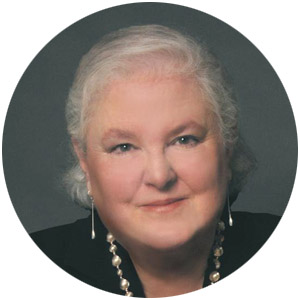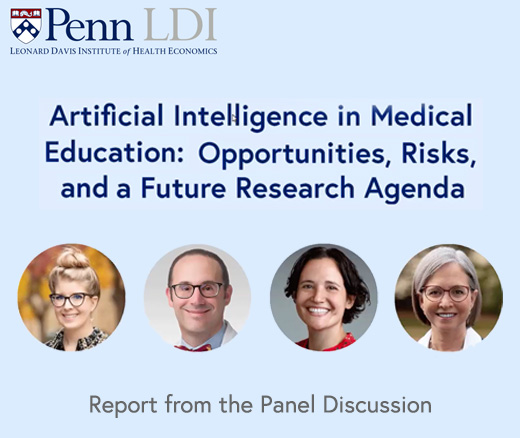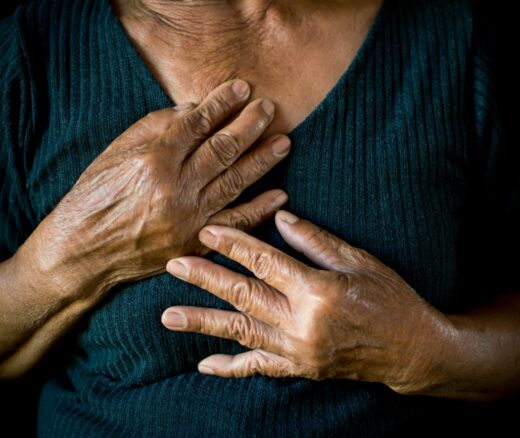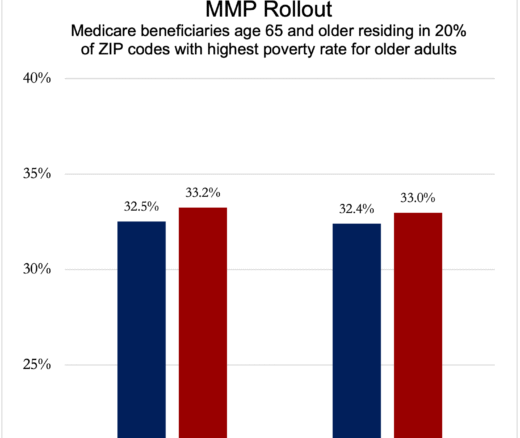
Hospital Mergers Don’t Make Care Better—They Just Make It Pricier, LDI Fellows Say
A New Review Finds Hospital Mergers Raise Prices Without Improving Care, and Urges Regulators to Stop Accepting Quality Claims to Justify Consolidations
Population Health
News
Therese Richmond, PhD, RN, LDI Senior Fellow and Associate Dean for Research & Innovation at the University of Pennsylvania School of Nursing, will receive the American Association of Critical-Care Nurses (AACN) 2023 Marguerite Rodgers Kinney Award for a Distinguished Career. The presentation will occur in May during the annual National Teaching Institute & Critical Care Exposition in Philadelphia in May.
Established in 1997 and named for Marguerite Rodgers Kinney, AACN founding President and pioneer in the field of critical care nursing, the award recognizes “extraordinary and distinguished professional contributions that further the vision of a healthcare system driven by the needs of patients and their families where acute and critical care nurses make their optimal contribution.”

The organization is the world’s largest specialty nursing organization with 130,000 members and more than 200 chapters in the United States.
In her announcement, AACN President and LDI Senior Fellow Amanda Bettencourt, PhD, who is also on the faculty at Penn Nursing, explained, “Sparked by her experience as a trauma nurse, Dr. Richmond took a holistic approach to traumatic injuries, looking beyond the individual patient. Her work has informed initiatives and policies that address systemic issues, health disparities, social justice and survivors’ quality of life. She has worked tirelessly to elevate the way we view violence and injuries to better understand how these injuries happen, why they happen where they do, how they psychologically affect the victims, and how to prevent them in the first place.”
Richmond, who is also a Professor of Surgery at the Perelman School of Medicine, joined the Penn School of Nursing in 1997 as an Assistant Professor of Trauma & Critical Care Nursing. She went on to co-found the Penn Firearm and Injury Center over two decades ago, which has since become the Penn Injury Science Center where she directs the research core. The center’s scope has grown to encompass opioid overdose, violence, older adult falls, trauma systems, concussion and traumatic brain injury, road traffic injury, and the physical and social environment.
A widely recognized national authority in her field, Richmond served on the federal advisory committee to the Secretary of the Department of Health and Human Services for the National Health Promotion and Disease Prevention Objectives for 2030. She also serves on the Board on Population Health and Public Health Practice at the National Academy of Sciences, Engineering, and Medicine. She is a fellow in the American Academy of Nursing and an elected member of the National Academy of Medicine.

A New Review Finds Hospital Mergers Raise Prices Without Improving Care, and Urges Regulators to Stop Accepting Quality Claims to Justify Consolidations

CMS’s Main Risk Adjustment Method Underestimates Rural Patients’ Health Risks, LDI Fellows Show, Potentially Reducing Access to Care in the Heartland

Experts at Penn LDI Panel Call for Rapid Training of Students and Faculty

A Proven, Low-Risk Treatment Is Backed by Major Studies and Patient Demand, Yet Medicare and Insurers Still Make It Hard To Use

New Study From LDI and MD Anderson Finds That Black and Low-Income, Dually Eligible Medicare Patients Are Among the Most Neglected in Cancer Care

Her Transitional Care Model Shows How Nurse-Led Care Can Keep Older Adults Out of the Hospital and Change Care Worldwide

Chart of the Day: Medicare-Medicaid Plans—Created to Streamline Care for Dually Eligible Individuals—Failed to Increase Medicaid Participation in High-Poverty Communities

Penn LDI Debates the Pros and Cons of Payment Reform